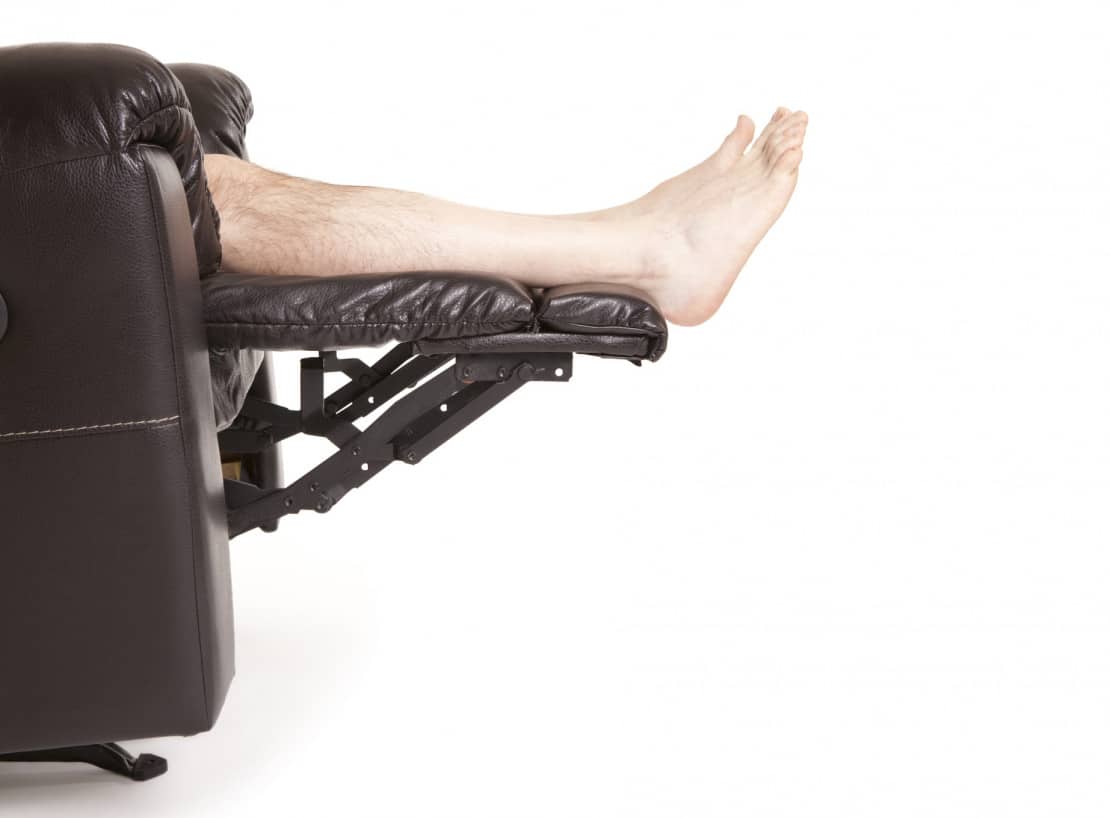Editor’s Note: We are happy to announce that world-renowned brain health expert Dr. Paul Nussbaum is joining our team at The Institute for Natural Healing.
He is an adjunct professor in neurological surgery at the University of Pittsburgh School of Medicine. Dr. Nussbaum’s groundbreaking work was recently featured in The New York Times.
Watch your inbox in the coming weeks for Dr. Nussbaum’s advice on how to prevent brain aging and keep your mind sharp.
 By Dr. Paul Nussbaum
By Dr. Paul Nussbaum
I dearly love my father. And some years ago I had the best intentions when I decided to buy a gift for him.
He is in his 80s and has worked hard all his life. He deserves all the creature comforts life has to offer. I thought he would enjoy a nice, plush recliner.
I turns out it was the worst gift I could have given him.
Here’s what I know now that I didn’t know then: Sitting for hours at a time is terrible for his—or anybody’s—brain. Physical activity is crucial for maintaining cognitive fitness.
If you talk to Alzheimer’s caretakers, they will tell you they wear themselves out by having to constantly repeat things. They have to keep reminding the patient that, for example, they have already had breakfast.
Recommended for You: 5 Alzheimer’s Weapons Already in Your Kitchen
A common spice…a simple vitamin…a delicious juice…a grocery store treatment…a powerful berry…all shown by science to fight Alzheimer’s. And most are already in your home.
That’s because the patient’s hippocampus has been damaged by Alzheimer’s. Their short-term memory, a function of the hippocampus, doesn’t work.
But regular physical activity has been shown to increase the volume of the hippocampus. Study after study shows that exercise helps the brain. And it doesn’t take much.
For example, researchers at the University of British Columbia found that walking briskly for one hour only a twice a week boosts the size of hippocampus.1
The Best Type Exercise for Your Brain
I’m often asked what type of activity is best for brain health. The fact is, just about any kind of physical activity has benefits. But if you had to choose only one type, science shows aerobic exercise seems the most helpful.
Aerobic exercise takes many forms… Brisk walking, jogging, biking, swimming, tennis, dancing, and many other activities. Doing these things three times a week or more has been shown to reduce the risk of dementia.
And there’s a way to make aerobic exercise even more beneficial…by doing something that requires you to think while you’re moving. Studies show that by adding a cognitive component, you make even bigger gains.
Dancing is one example. It is aerobic. But you are not just moving and getting your heart pumping. You are also using your brain to map out the proper steps. You have to think about what you’re doing. This heavier cognitive burden is good for your brain.
Other brain-active forms of aerobic exercise are similar. Examples are tennis, racquetball, basketball, volleyball, and ping pong. In these sports and many others, you must use your brain to devise strategy, analyze your opponent, and think about what you’ll do next.
You can add a cognitive burden to activities that otherwise might not require much thinking. For example, if you swim, don’t just do the same strokes. If you normally do freestyle, try to learn the back stroke. This engages your mind.
If you are a walker, don’t always take the same route. Vary it to require yourself to think a little more about where you’re going.
Get Out of Your Chair
I have often regretted buying that chair for my father. When I call him now, I find myself warning him to stay out of it. I know that the more time he spends on his feet moving, the better off he’ll be.
I should have bought him a stationary bike instead!
Like this Article? Forward this article here or Share on Facebook.
References:
1http://www.health.harvard.edu/blog/regular-exercise-changes-brain-improve-memory-thinking-skills-201404097110

